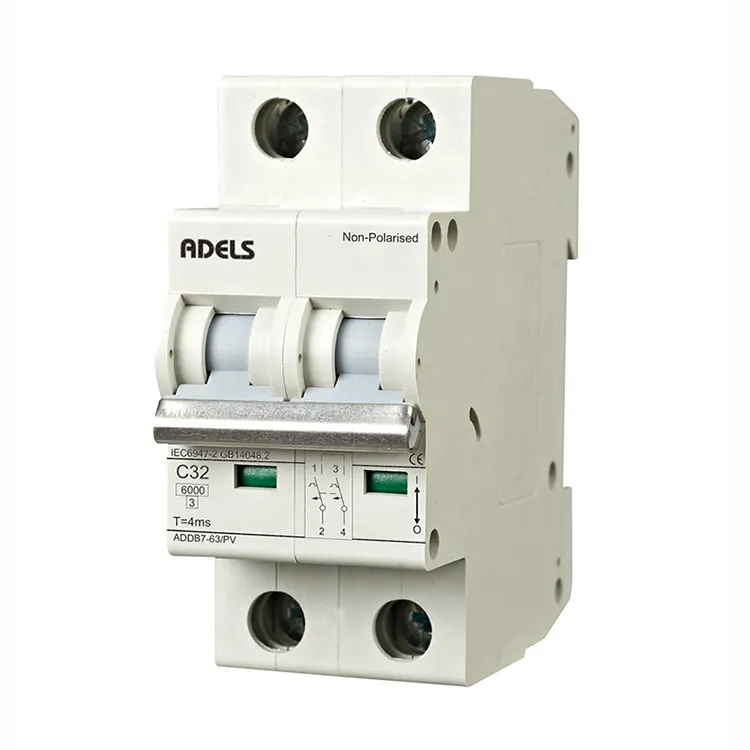DC Circuit Breakers: Essential Protection for Your DC Power Systems
2024-08-27
In an era where renewable energy and electric vehicles are becoming increasingly prevalent, the importance of reliable and efficient electrical protection cannot be overstated. DC Circuit Breakers play a crucial role in safeguarding direct current (DC) power systems, ensuring they operate safely and efficiently. In this blog, we'll delve into what DC Circuit Breakers are, how they work, and why they are essential for modern power systems.

What is a DC Circuit Breaker?
A DC Circuit Breaker is an electrical safety device specifically designed to protect DC power circuits from overloads and short circuits. Unlike AC circuit breakers, which handle alternating current, DC circuit breakers manage direct current's unidirectional flow. This makes them an essential component in various applications, from renewable energy installations to electric vehicles and industrial equipment.
How Do DC Circuit Breakers Work?
DC Circuit Breakers function by automatically interrupting the flow of electricity in a circuit when a fault, such as an overload or short circuit, is detected. They achieve this through the following mechanisms:
1. Detection of Faults: The breaker continuously monitors the current flowing through the circuit. If the current exceeds a predetermined limit, indicating an overload or short circuit, the breaker trips.
2. Arc Suppression: When a DC circuit is interrupted, an arc (a discharge of electricity) can form due to the continuous flow of current. DC Circuit Breakers are equipped with arc suppression features to safely extinguish these arcs and prevent damage.
3. Manual and Automatic Operation: DC Circuit Breakers can be operated manually to disconnect a circuit for maintenance or automatically in response to a fault condition.
Key Benefits of DC Circuit Breakers
1. Protection Against Overloads: DC Circuit Breakers prevent damage to equipment and wiring by interrupting the flow of excessive current, which can cause overheating and fires.
2. Safety Assurance: By quickly disconnecting faulty circuits, DC Circuit Breakers protect users from electric shock and other hazards, ensuring a safer operating environment.
3. Reliable Performance: Designed specifically for DC applications, these breakers offer reliable protection with fast response times, essential for sensitive electronics and power systems.
4. Longevity of Equipment: By preventing electrical faults, DC Circuit Breakers help extend the lifespan of equipment, reducing downtime and maintenance costs.
Applications of DC Circuit Breakers
1. Renewable Energy Systems: Solar panels and wind turbines generate DC power, which is then converted to AC for use. DC Circuit Breakers protect these systems from faults, ensuring continuous power generation.
2. Electric Vehicles (EVs): DC Circuit Breakers are used in EV charging stations and battery management systems to protect against overcurrents, enhancing safety and reliability.
3. Industrial Automation: Many industrial processes use DC power for control systems and machinery. DC Circuit Breakers provide protection, ensuring the safety and efficiency of these systems.
4. Telecommunications: DC power is commonly used in telecom networks to ensure reliable communication. Circuit breakers protect sensitive equipment from power surges and faults.
Conclusion
DC Circuit Breakers are an integral component of any DC power system, providing critical protection against electrical faults. By investing in quality DC Circuit Breakers, businesses and homeowners can safeguard their equipment, ensure safety, and maintain efficient operations. As the demand for DC power continues to grow, the role of DC Circuit Breakers in protecting these systems will become increasingly important.


